With data privacy regulations like GDPR (General Data Protection Regulation) in full effect, you’re probably wondering how to get your startup fully compliant. Not to worry – this comprehensive GDPR startup guide breaks down everything you need to know to get up to speed on the regulation.
You’ll learn whether GDPR applies to your startup, what’s considered personal data, the steps to follow to achieve compliance with the EU regulation, and the fastest way to get there.
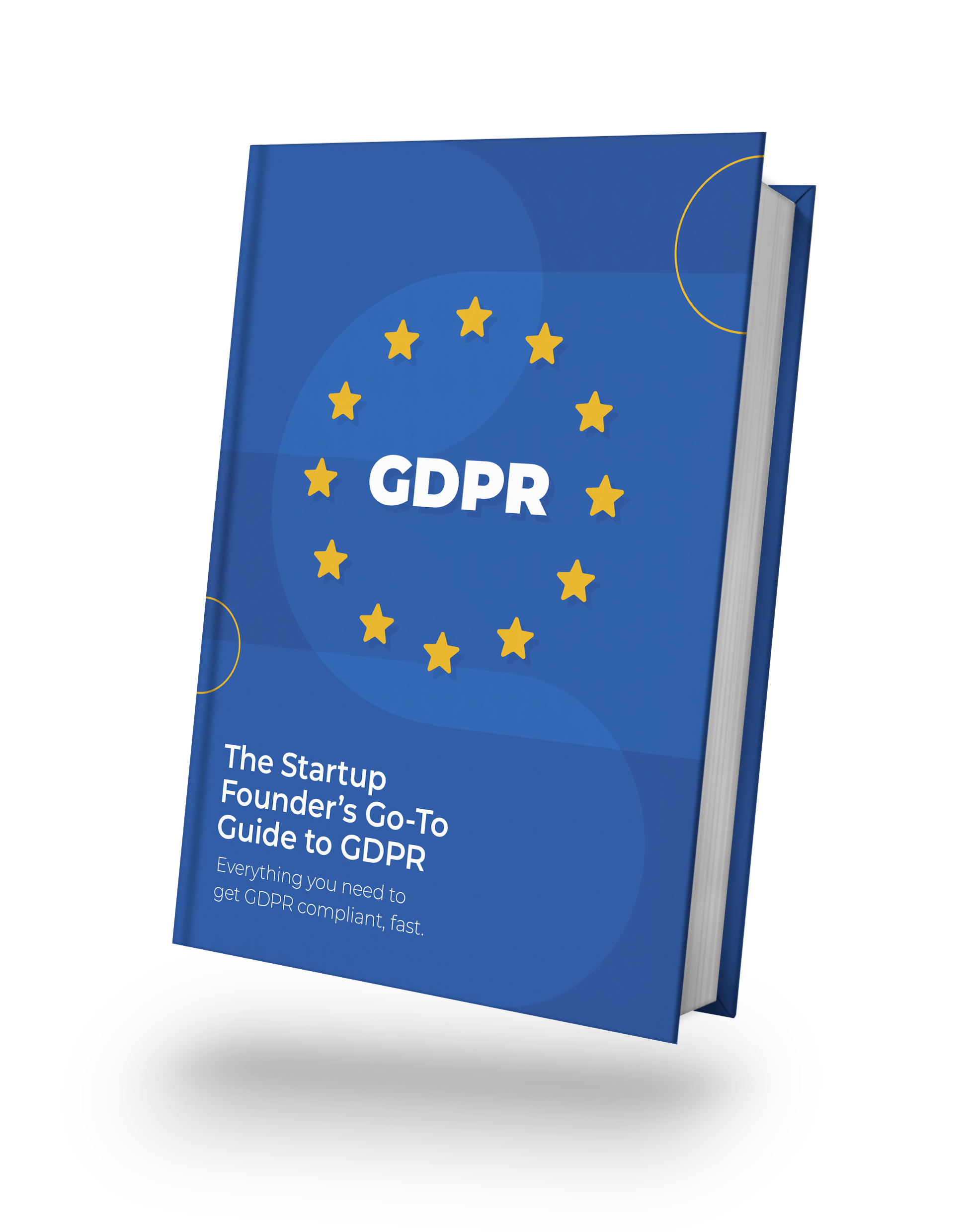
As a startup founder, you need to determine if GDPR impacts your business. GDPR applies to any organization, regardless of its location, that processes or intends to process the personal data of individuals within the European Union (EU).
Even if you have no EU presence currently, GDPR may still apply if you plan to expand into Europe or collect data on EU citizens in the future. It’s best to build privacy protections and compliance into your business model from the start. GDPR considers things like names, email addresses, locations, and IP addresses to be personal data, so most startups will need to comply.
Don’t panic, though. Achieving and maintaining GDPR compliance, while critical, need not be an insurmountable task. By taking it step-by-step with the right guidance, training your team, and implementing the necessary safeguards and processes, your startup can meet its GDPR obligations thoroughly and responsibly.
As a startup founder, it’s crucial to understand what qualifies as personal data under GDPR. Basically, any information relating to an identified or identifiable natural person is considered personal data.
Even pseudonymized data may qualify as personal data if it can be traced back to a person. This includes a wide array of data types beyond the traditional identifiers, such as online cookies, device IDs, and other unique digital markers.
Some examples of personal data your startup may collect include:
The key is to evaluate what information you gather that could directly or indirectly identify an individual. Once you’ve identified the personal data in your systems, you can properly secure and manage it to comply with the GDPR.
A Data Protection Officer (DPO) is crucial for overseeing your startup’s data protection strategy, ensuring GDPR compliance, and serving as the point of contact between your startup and regulatory authorities. In certain instances designation of a DPO is mandatory, however, it is best practice to appoint a responsible individual. Appointing a DPO demonstrates your commitment to privacy and can help ensure GDPR compliance.
As a startup founder, you have two options for a DPO:
1
2
If opting for an internal DPO, choose someone with experience in data protection and legal matters. Provide them with ongoing training to stay up-to-date with regulations.
Alternatively, hiring an outside DPO, either as a consultant or part-time employee, brings specialized expertise. They can focus solely on data protection, advising your team on compliance and monitoring policies.
Whichever you choose, your DPO should have an in-depth understanding of GDPR and data protection. They will conduct data inventories, advise on Privacy Impact Assessments, and ensure policies meet GDPR standards. Your DPO will also field data subject requests, like access or deletion requests, in a timely manner. They will serve as your startup’s go-to for any privacy or data use questions.
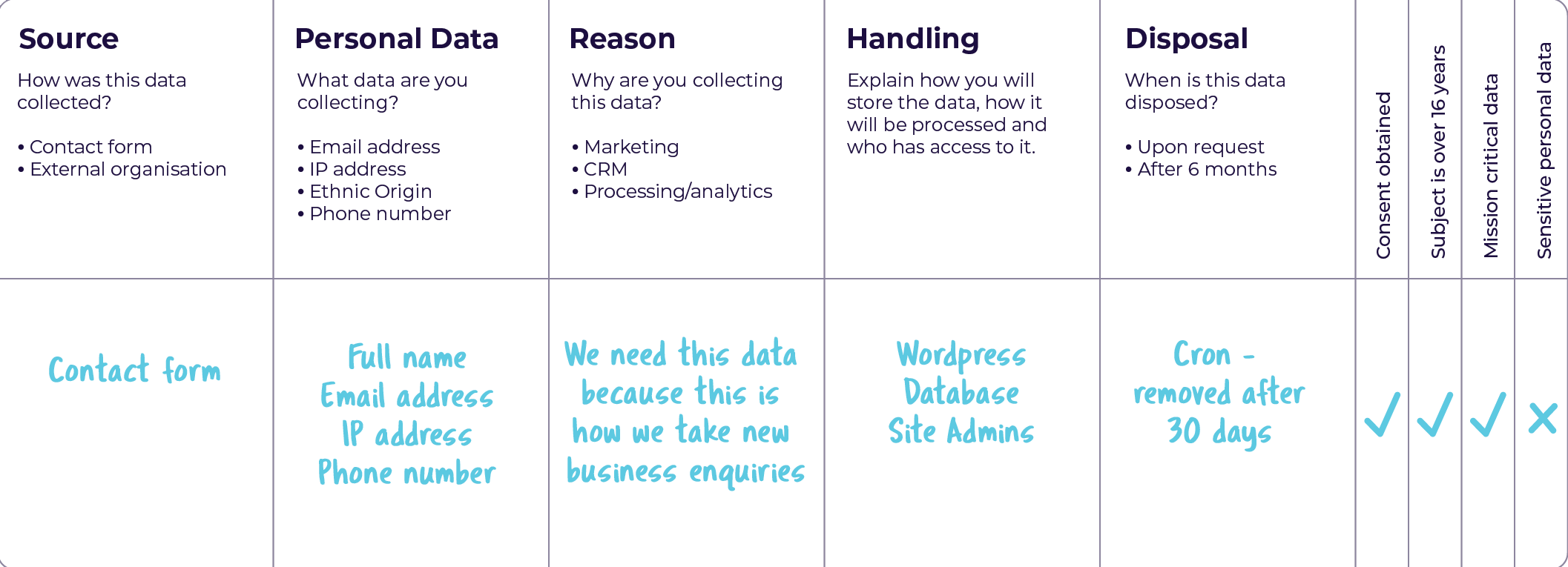
The next step to GDPR compliance is taking stock of what personal data your startup collects and maintains in the form of a ROPA (Records of Processing Activities). Include in your ROPA any third-party services you use that may access or process this data, outlining their role and the nature of their access. Comb through everything you and your third-party providers collect, like names, emails and locations. Figure out why it’s needed and how long to keep it. Only collect what’s necessary and be transparent about how it’s used.
Your ROPA should include items like names, email addresses, and locations, as well as less apparent data points that can be used to identify individuals. Once you have a comprehensive list, determine the legal basis for processing each data type. Common legal grounds include contractual necessity, legitimate business interests, legal obligations and in limited cases consent. Clearly outlining your data processing rationale will help ensure your startup respects users’ rights and only collects information for specified, explicit, and legitimate purposes under the GDPR.
Explain how you use data in your privacy policy. For example, explicitly obtain consent for sending marketing emails or processing transactions, ensuring that such consent meets GDPR’s requirements for being informed, specific, and unambiguous.
To make sure your startup is GDPR compliant, you need to create a solid legal foundation. This means crafting a comprehensive privacy policy that clearly outlines what personal data you collect, how it’s used, and the legal basis for processing it (also mapped in the above step). Be transparent by explaining things in a simple, easy-to-understand way. Let users know their rights regarding data access, rectification, erasure, and restriction. And don’t forget to provide opt-in (and opt-out) consent forms for collecting and using people’s information.
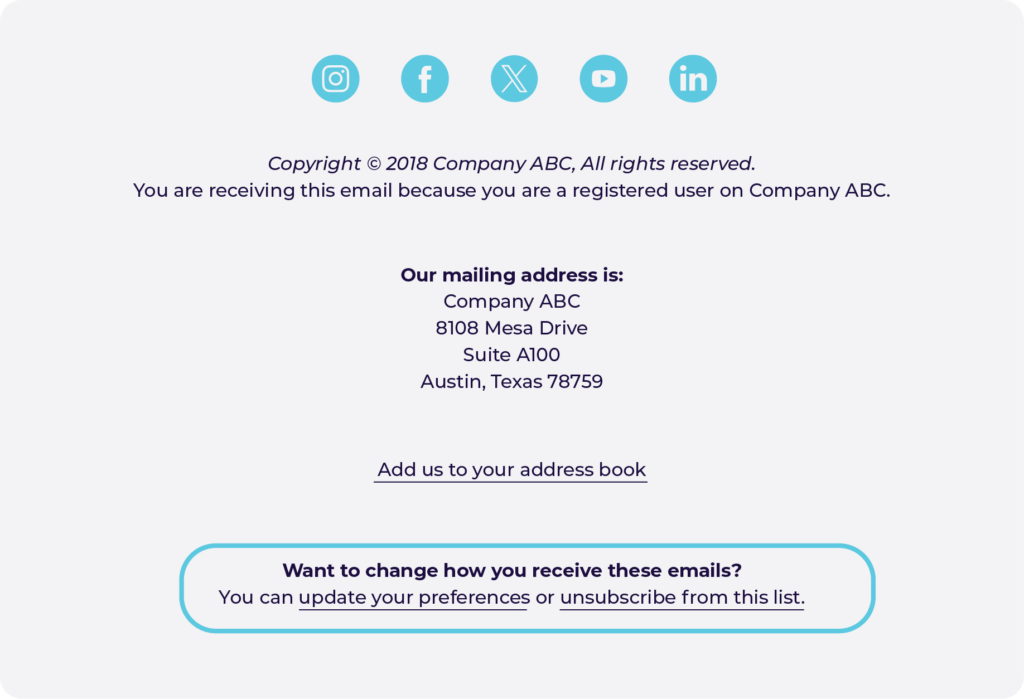
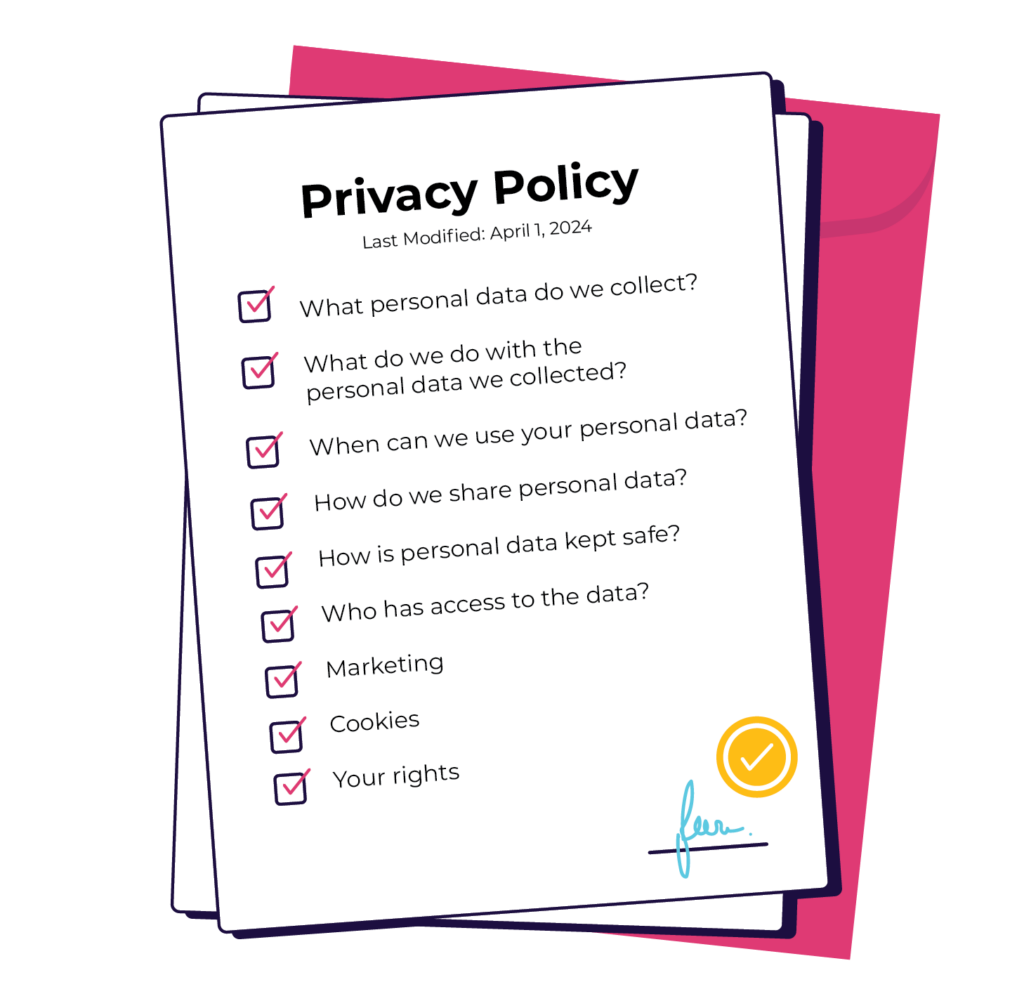
Continuing from the above step, your DPO or external expert needs to oversee, review and refine policy changes and ensure compliance with GDPR. They can help determine if you need consent for data collection and implement mechanisms for users to opt-in or withdraw consent.
Once the policy is updated, publish it on your website and in your mobile app if you have one. You must make it easy to access, read and understand. Consider adding visual elements like infographics to simplify complex legal jargon for the everyday-user.
Drafting these legal documents may seem tedious, but they’re crucial for accountability and building trust with your users. Let an external compliant expert pick this important step up for you to keep your documents updated as your startup’s data practices evolve.
To keep data secure, utilize strong passwords, encryption techniques, and access controls. This prevents unauthorized access and protects users’ personal data.
Encrypt sensitive data like credit card numbers and passwords. Use a VPN when transferring data between your startup’s networks. Limit access to personal data to only employees who need it. Require two-factor authentication for accounts that access personal data.
Conduct regular risk assessments to identify vulnerabilities. Then, take appropriate measures to patch any weaknesses found. It’s also wise to back up data in case of breaches. And be sure to stay up-to-date with the latest IT security standards.
Educate your staff on security best practices. Require GDPR and data protection training for all employees. Explain the importance of confidentiality and the consequences of data misuse. Set clear policies for data access and hold employees accountable.
With strong safeguards and an educated team, you’ll keep your startup’s data secure and your users’ trust intact. Privacy and security should be an ongoing process, not a one-time fix. Stay vigilant and make improvements whenever needed.
GDPR gives users significant rights over their data. Make sure your startup honors these rights by allowing users to access, correct, delete, and limit how their data is used.
Users can request details on what data you have about them and how it’s processed. Be prepared to provide this information in a portable, easy to understand format within 30 days. They can also ask you to update or delete their data. Except in some situations, you must comply with these requests promptly and at no cost.
If a user withdraws consent for data processing or objects to how their data is used, you must stop that processing. Limited exceptions apply, so check if they apply to your situation. In some cases, you may be able to continue processing if you can demonstrate legitimate reasons for doing so. However, the user still has the right to object.
To ensure you respect user rights, build them into your privacy policy, data management practices, and staff training programs. Regularly review how your startup collects and uses personal data to guarantee full GDPR compliance. Establish a procedure on how to manage data subject access requests internally and stay up to date with guidance from compliance experts to properly honor user rights.
Many startups rely on outside companies for services like cloud storage, analytics, or email marketing. These third-party providers are data processors that handle your users’ personal data, so you must ensure they follow GDPR.
Sign data processing agreements (DPAs) with any vendor that processes personal data on your behalf. These contracts establish guidelines for handling user information and following the GDPR. Review each processor’s data protection policies to confirm they have appropriate technical and organizational measures to secure data. They should have good security measures in place, report any data breaches to the controller in a timely manner and properly train employees.
Stay up to date on processors’ GDPR compliance. Conduct regular reviews of their data protection practices. If you discover violations, demand corrective action or switch to a compliant provider. You’re responsible for personal data passed to processors, so managing them properly is key to your own GDPR compliance.
Continuously monitoring third-party data processors – and maintaining strict DPAs – helps guarantee they handle your users’ personal data responsibly and in line with the GDPR.
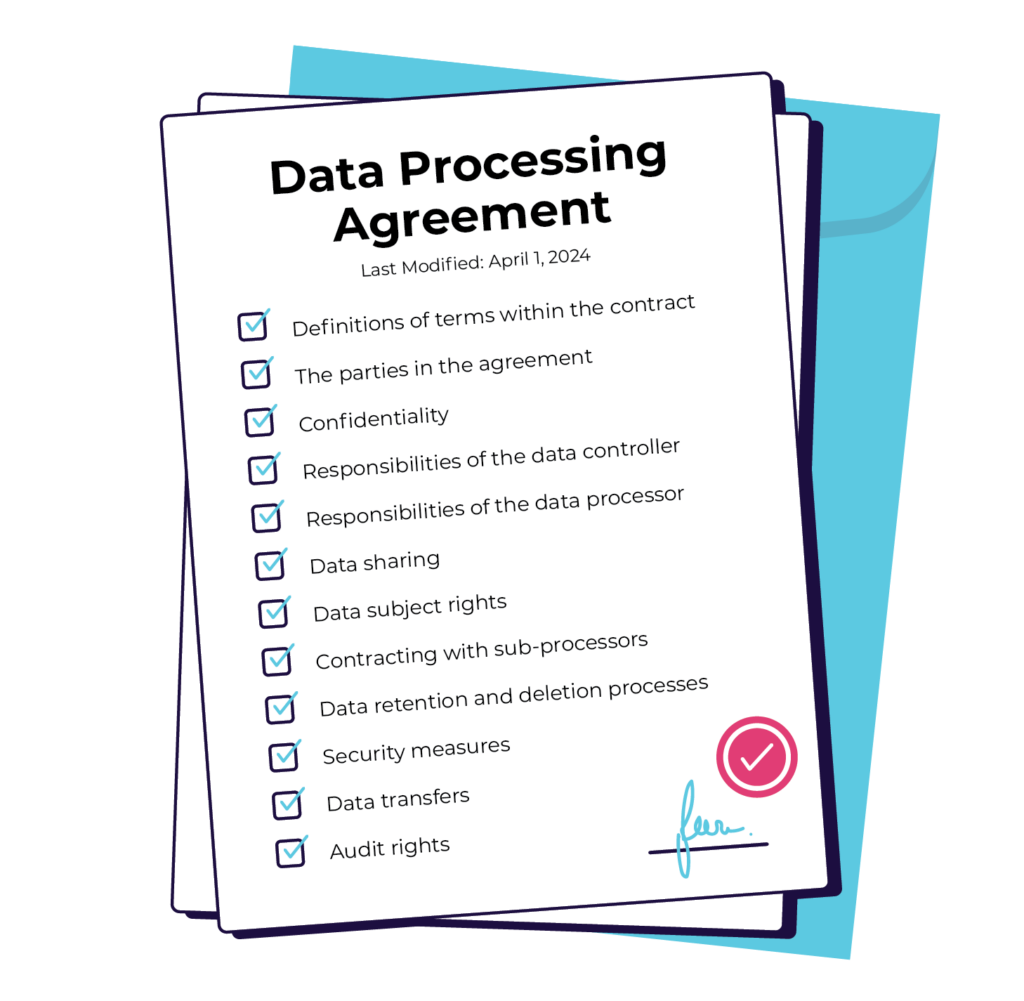
Make sure your entire team understands the GDPR and data protection best practices. Your startup’s data practices are only as strong as your weakest link, so comprehensive (and regular) training is key.
Cover topics like:
Test staff knowledge through quizzes and simulations. Provide easily accessible resources like FAQs, cheat sheets, and helplines for questions. Upskill key team members (or let an expert handle it for you) to be data protection go-to’s to help guide less experienced staff, so that GDPR compliance becomes second nature across your organization.
There are several important considerations for startup founders looking to ensure GDPR compliance in their startups. Here’s an overview of the time and costs involved in achieving GDPR compliance, as well as the effects on your startup’s day-to-day operations and business growth:
GDPR compliance is an ongoing process, not a one-time task. As a founder, you must allocate sufficient time for the following:
Achieving and maintaining GDPR compliance can be costly, especially for startups with limited budgets. As a founder, you should factor in expenses such as:
Then there’s the cost of not complying. Potential fines for non-compliance can reach up to €20 million or 4% of your startup’s global annual revenue, whichever is higher.
GDPR affects various aspects of your startup’s daily operations, including data collection, storage, processing, and sharing practices. As a founder, you must ensure that:
GDPR can impact a startup’s growth and scalability, as compliance requirements may vary across different jurisdictions, especially when expanding internationally. As a founder, you should:
If your startup is relying on manual processes for the above steps to GDPR compliance, you’re likely struggling with quite a few challenges. For one, documenting all your personal data processing activities requires combing through systems and workflows to uncover what data you collect, how it’s stored, who has access, retention policies, and more. This tedious task often takes months of staff time to complete accurately. The solution? Embrace automation. Here’s how it can help:
Ensuring GDPR compliance involves thorough evidence collection that is verified for GDPR requirements and updated as changes occur. Compliance automation tools streamline this process significantly by automatically collecting evidence.
Conducting a proper risk assessment is crucial for GDPR compliance, but it can be complicated. Utilizing compliance tools with guided, simplified and automated risk assessments can help in identifying and addressing privacy and security risks. These tools are designed to review your systems, pinpoint any gaps, and remediate them. This simplifies the risk assessment process, enabling swift action to address any issues that arise.
Creating custom data protection policies that meet GDPR standards requires expertise. Compliance solutions make it easy to generate and maintain all required policies with pre-built policy templates. This helps ensure your policies cover all necessary areas and comply with GDPR principles.
Conducting user access reviews is critical for GDPR compliance, but doing them manually can be painful. Compliance software leverages automation to streamline reviews, detect excessive user access, and provide remediation guidance to ensure only authorized users have access to personal data.
GDPR requires personnel to complete regular data protection training, but manually tracking and administering this can be tedious. Automated training management systems can schedule and assign GDPR training courses, send reminders, and provide reports on completion rates. They ensure your team’s training is always up-to-date and compliant.
Ongoing monitoring is key to ensure GDPR compliance. Automated tools can continually scan for non-compliant activities like unauthorized data access or improper data handling. They alert you immediately if issues are detected so you can take corrective action right away. 24/7 monitoring provides peace of mind that you won’t miss an incident.
The bottom line? Don’t risk it. GDPR may seem daunting but breaking it down into achievable steps with the help of automation and GDPR experts makes compliance with the regulation totally doable.
If you’re a startup looking to make it big in Europe, the cost of GDPR compliance is just another cost of doing business across the pond. Yes, achieving full compliance takes time and money, but the fines and lawsuits you open yourself up to by ignoring GDPR just aren’t worth it. Being GDPR compliant will also help you conclude business deals with ease and build a great reputation for protecting people’s personal data. Protect your users, protect your data, protect your company.
Get compliant, get innovative within the regulations, and get back to building an amazing product. Let’s get (and keep) your startup GDPR-compliant!



